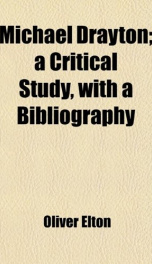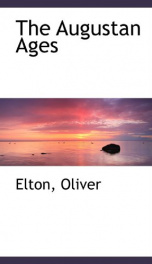michael drayton a critical study with a bibliography

Purchase of this book includes free trial access to www.million-books.com where you can read more than a million books for free. This is an OCR edition with typos. Excerpt from book: CHAPTER II AN ELIZABETHAN POET More than the masters, the explorers of unknown forms, the original breakers-up of the wilderness, Drayton has the title of an Elizabethan poet, of a representative. He tells of the current achievements and aims of his age in poetic art. What others lend him, he appropriates with power and rede- livers, and he comes honestly by the pleasure that his work gives him. The rarer part of a truly originative mind like Spenser's his nicety of colour or his sense of the terror of the seaonly isolates him from contemporary feeling: it is usually best felt by far posterity, and it offers no hold to discipleship. Drayton was no such weaver of new hues and stories upon the arras of dreams ; his delight is to utter sincerely the | ruling Elizabethan thoughts and ardours,)though he too, as will appear, struck, after a while, on some fortunate inventions, and heard rhythms of his own. He tried nearly every kind of verse that was the mode during the last ten years of the queen's reign, except moral allegory. He wrote pastoral, sonnet, paraphrase, Ovidian fable, narrative chronicle, legend, and panegyric. If no other poetry were left but his, we could discover from it many of the imaginative interests of those years. The assurance of fame, the praise of queen and patroness, the passion for the past of England, and the curiosity for the world of the west; the feeling for the beauty of youth, the cordial extravagance in friendship, the fashion of loving; the conventions, too, of handling accepted for all these themes; are found in Drayton. They are treated, doubtless, with imperfect and fitful power, but poetry is never far off. From those ten years, to us foreshortened and so populous, a kind of part-song upon all these motives seems to arise, voice repeating ...
Info about the book
Author:
Series:
Unknown
ISBN:
0554913259
Rating:
4/5 (3)Your rating:
0/5
Languge:
English
Users who have this book
Users who want this book
What readers are saying
What do you think? Write your own comment on this book!
write a commentif you like michael drayton a critical study with a bibliography try:
Do you want to read a book that interests you? It’s EASY!
Create an account and send a request for reading to other users on the Webpage of the book!



